MFA Thesis Research Highlights
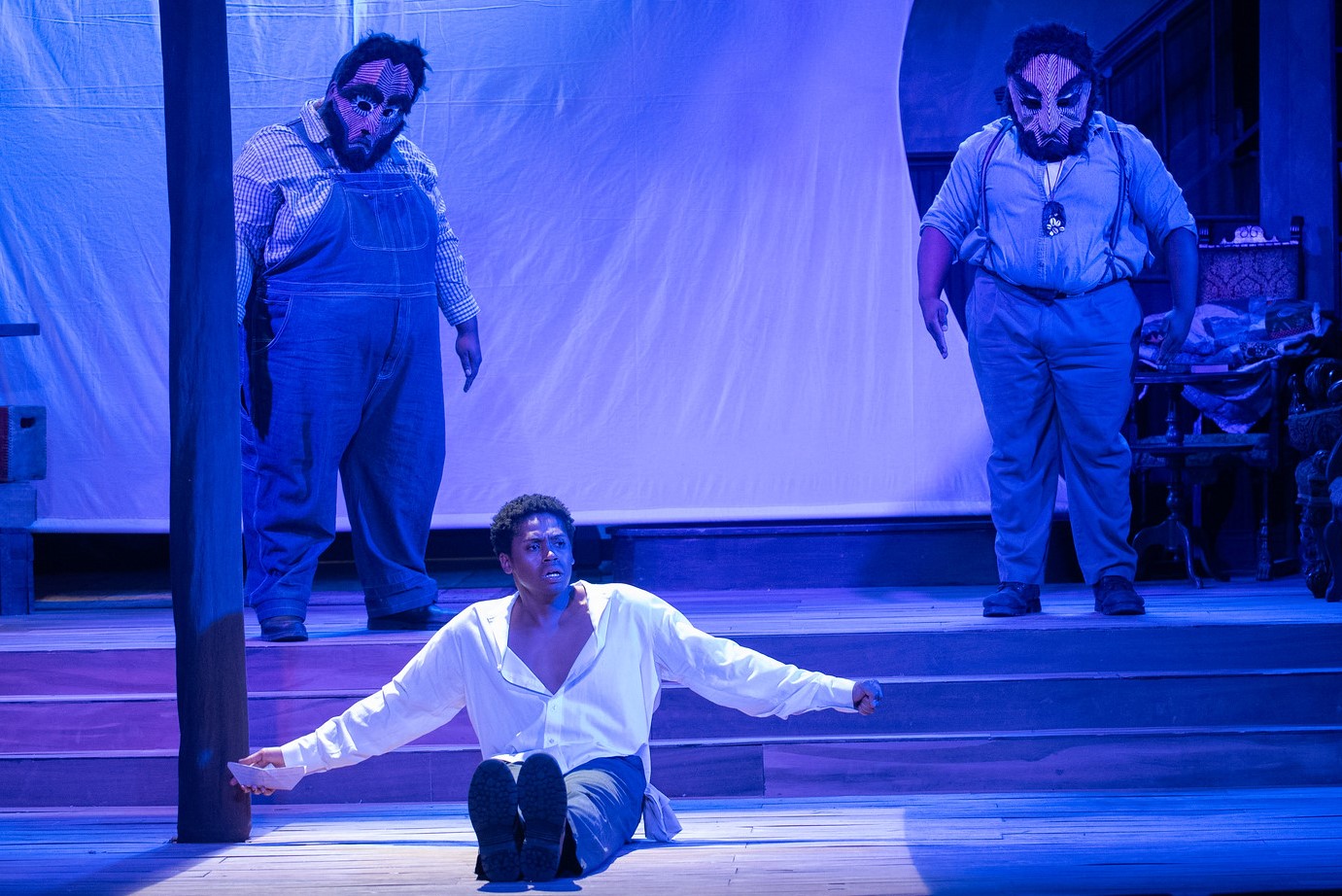 |
Tajleed Hardy, MFA 2024Thesis role: Citizen Barlow in Gem of the Ocean “My thesis, Transforming into a Politically Engaged Actor Through Gem of the Ocean, explored my transformation into a politically engaged theatre artist through my performance as Citizen Barlow in the University of Louisville's Department of Theatre Arts' 2024 production of August Wilson's Gem of the Ocean. This project was the culmination of my entire academic training, from my undergraduate study at Norfolk State University to my graduate work at the University of Louisville. By completing this thesis and combining my undergraduate and graduate training in theatre, I developed a process for other politically engaged actors who seek to support social justice through performance.” |
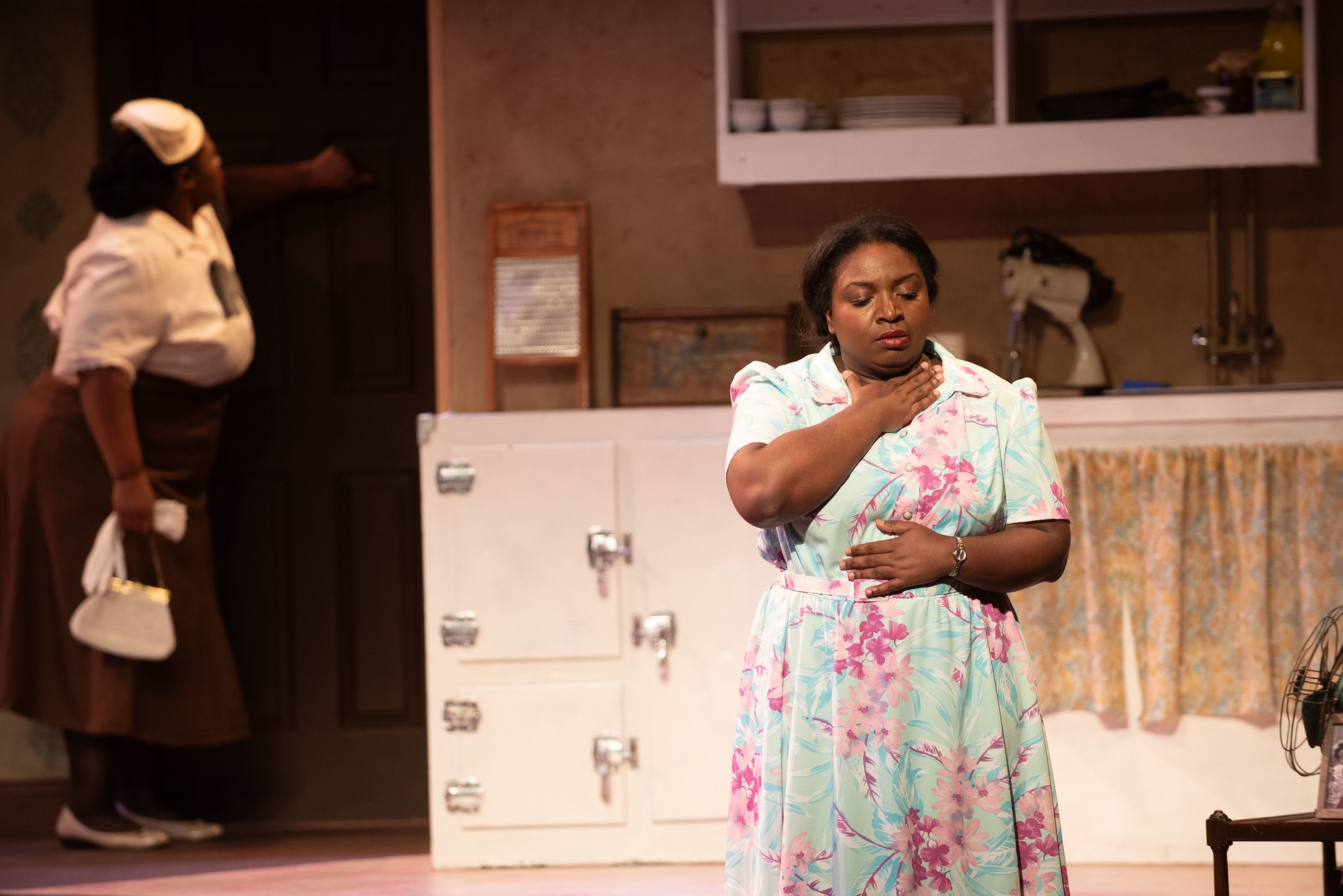 |
Nyazia Brittany Martin, MFA 2024Thesis role: Elizabeth "Bess" Borney in The Old Settler “My thesis, Adding Texture through Historical Research: Using Dramaturgy to Aid in the Creation of Elizabeth (Bess) Borney, focuses on my dramaturgical work in support of my thesis performance in the UofL production of The Old Settler. For this role, I used dramaturgy as a tool to build the character Elizabeth "Bess" Borney. Having first encountered the play through the medium of film and through another actress' version of the role, I used dramaturgy to further my vocal and movement work and to create my own multi-dimensional version of the character that was also rooted in historical reality. I studied the basics of dramaturgy, figured out which parts of that craft applied to my process, conducted dramaturgical research, used it to create the Bess role, and used it to troubleshoot gaps of knowledge for my upcoming role as Aunt Ester in Gem of the Ocean.” |
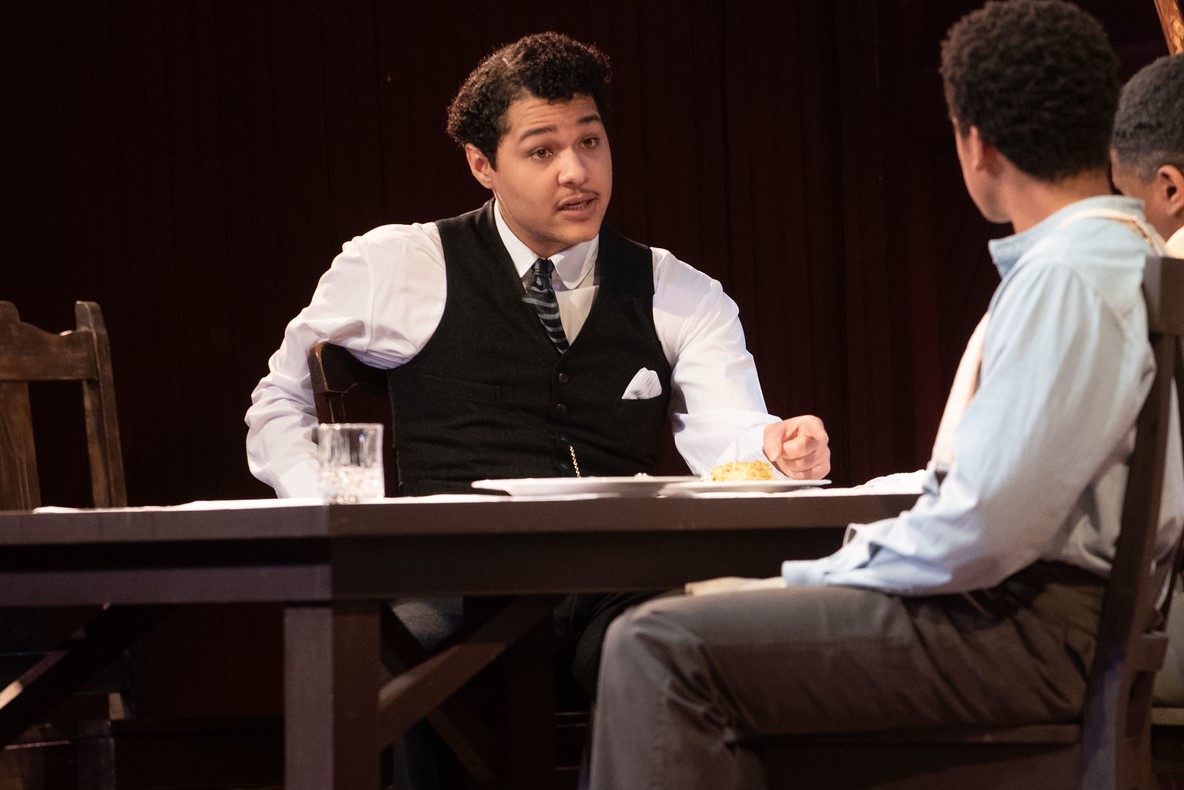 |
Nicholas Wills, MFA 2024Thesis role: Caesar Wilks in Gem of the Ocean “My thesis, Suspension of the Scoundrel: Applying Mental Health Strategies to the Acting Process, examines the benefits of having mental health resources, practices, and/or coordinators on set or available to help mitigate the mental health challenges that actors may face when portraying complex characters or engaging in emotional experiences in performance. Actors are required to fully immerse themselves into characters to ensure a full embodiment of the role. Without appropriate measures in place to address the actors' feelings, emotions, and psychological state before, during, and after a production, the actor stands the risk of absorbing the impact of the character with no strategy for how to address the subsequent negative mental health impact.” |
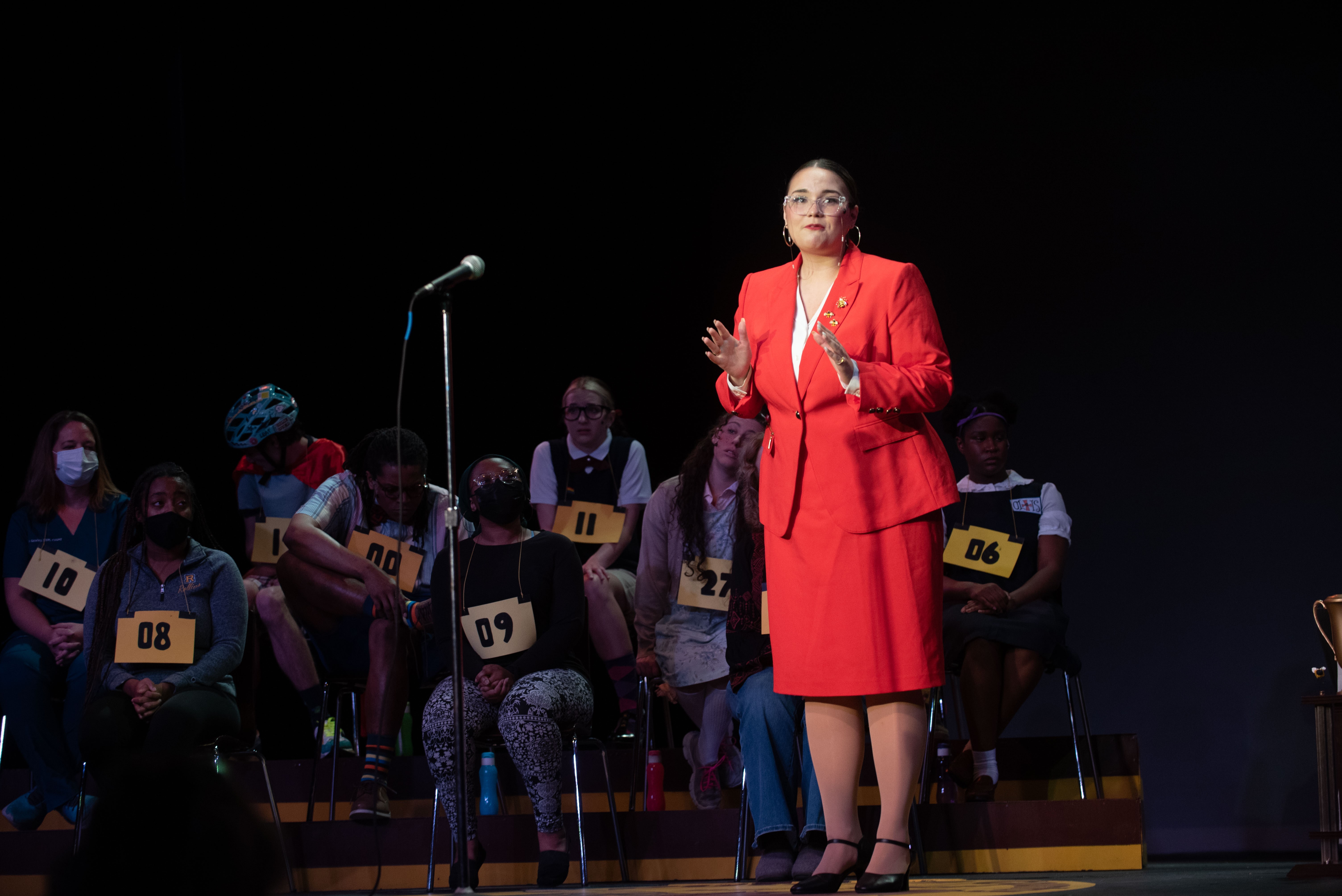 |
Sarah Chen Elston, MFA 2023Thesis role: Rona Lisa Peretti in The 25th Annual Putnam County Spelling Bee “Regeneration: Restorative Theatre Practice in Theatre Education aims to harness the holistic benefits of theatre as a discipline and create an intentional, restorative practice for performers. This thesis serves as a proposal to prioritize restorative and self-care practices within the theatre industry, specifically pre-professional training programs. This proposal takes the form of a curriculum that builds upon the current model of theatre training (Voice, Movement, Acting) by adding “Regeneration.” Regeneration provides theatre artists with specific areas of study to offer the psychosocial support a theatre artist may need during their pre-professional training. This thesis discusses how Regeneration practices are put into action by performers and how theatre-makers can use Regeneration practices to affect social change. ” |
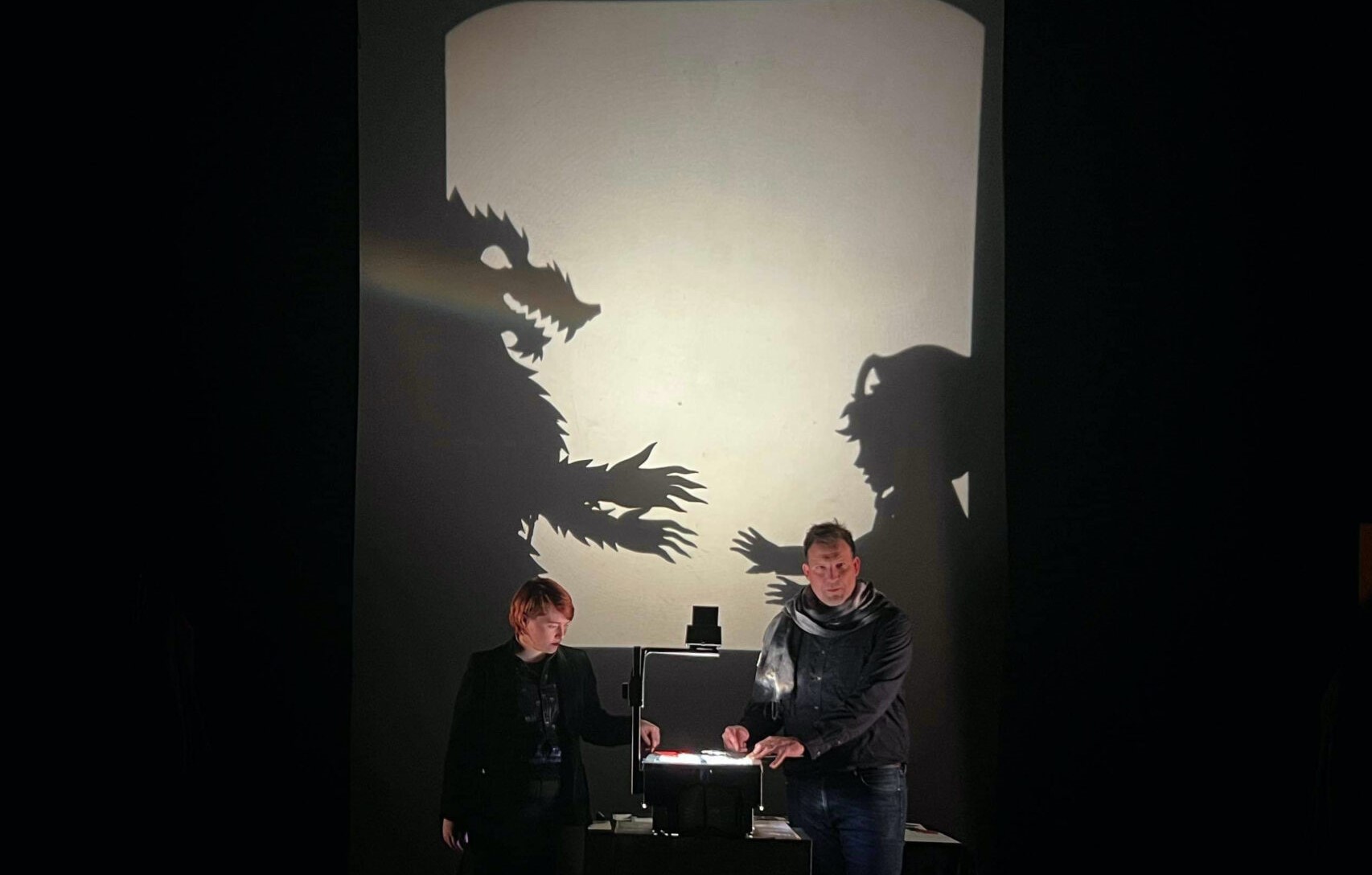 |
Alicia Fireel, MFA 2023Thesis role: Teacher in The Girl Crazy Queer and Other Fairy Tales “In the Fall of 2022, I wrote and performed The Girl Crazy Queer and Other Fairy Tales, an original two person play that examined the childhood trauma of a trans-nonbinary queer English teacher as they attempted to heal emotionally and offer support to a struggling Queer student. The action was set in that teacher's classroom, and in fairy tale versions of their own dark childhood memories. My written thesis was a mix of personal reflection on that performance, my life, Queer theory, the mental health crisis affecting queer teenagers, and real time recording of my emotional responses to the current events that unfolded as I wrote my thesis. These events including the murder of Louisville trans woman Zachee Imanitwitaho and the progress of transphobic legislations passing through the Kentucky senate, legislation that now makes it illegal for a teacher even say the word queer to students.” |
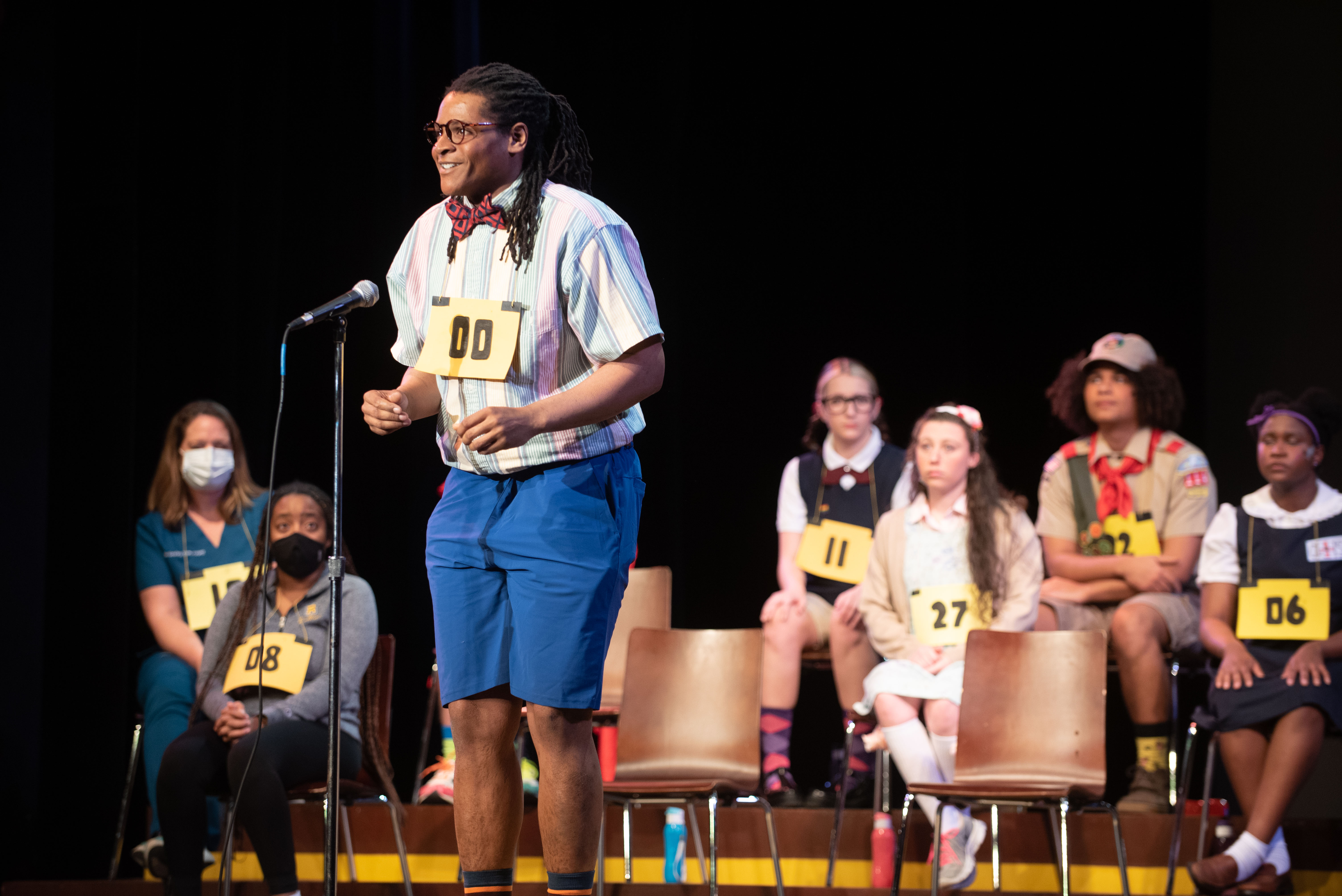 |
Sa’id “Nxttime” Kelly, MFA 2023Thesis role: William Barfeé in The 25th Annual Putnam County Spelling Bee Sa’id “Nxttime” Kelly used the role of William Barfeé in The 25th annual Putnam County Spelling Bee to look at humans’ different learning processes. That research became the basis for his thesis, Working For Yourself: A Guide for Performers with Learning Difference. This guidebook offers actors tools and tips on how to better process, retain, and incorporate written information for performance. |
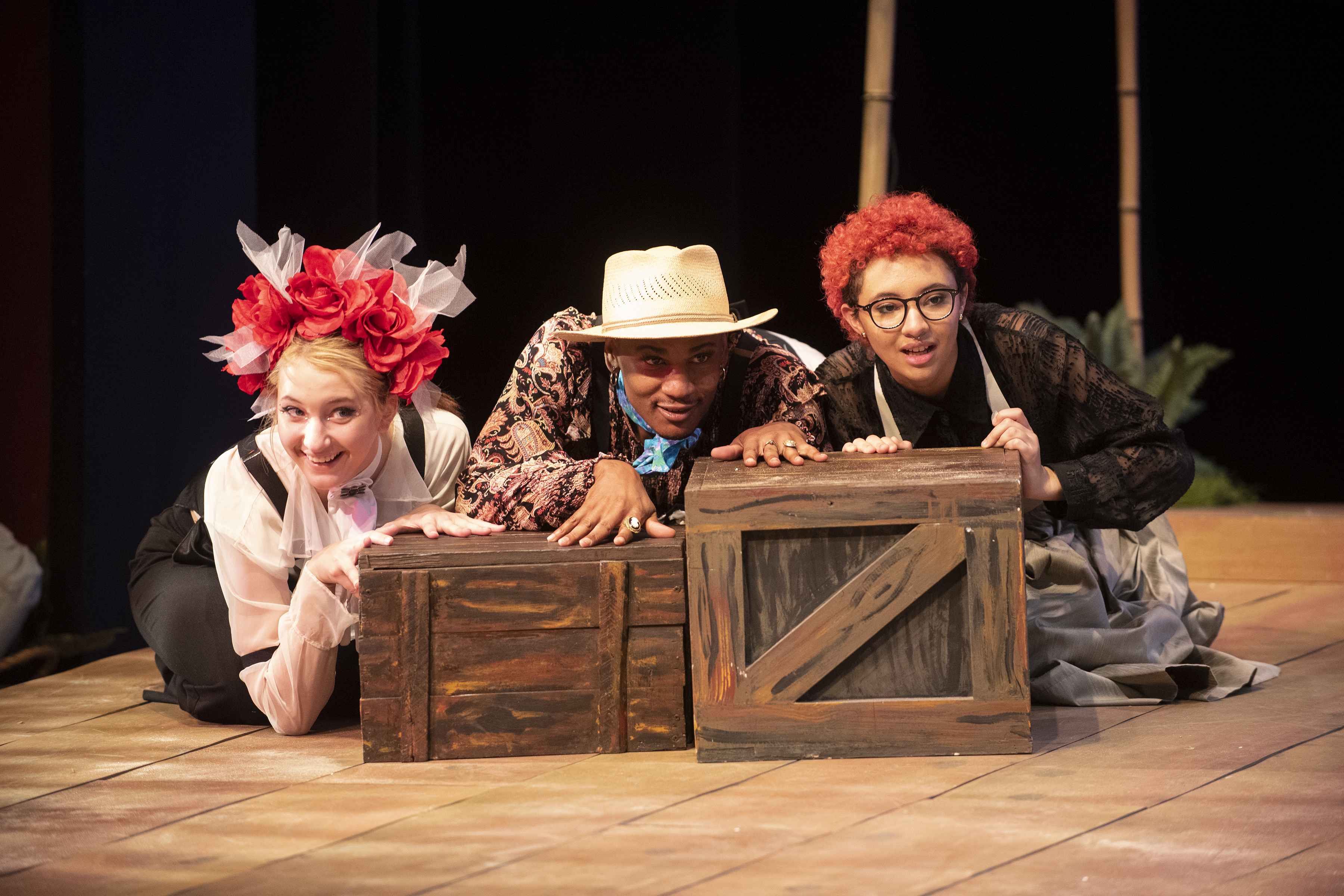 |
Jahi Bogard, MFA 2022Thesis role: Sir Toby Belch in Shakespeare’s Twelfth Night “In support of my thesis performance as Sir Toby Belch in the UofL production of Twelfth Night, I wanted to discover if my identify as a black, queer, cis-man could be incorporated into Shakespeare’s text. My written thesis,The Reading of Sir Toby Belch: A Queer and Black Exploration of William Shakespeare’s Twelfth Night, argues that Shakespeare’s plays can be appropriated by queer, black actors to express their queer, black identity and to reject colonialist conceptions of sexuality and race.” |
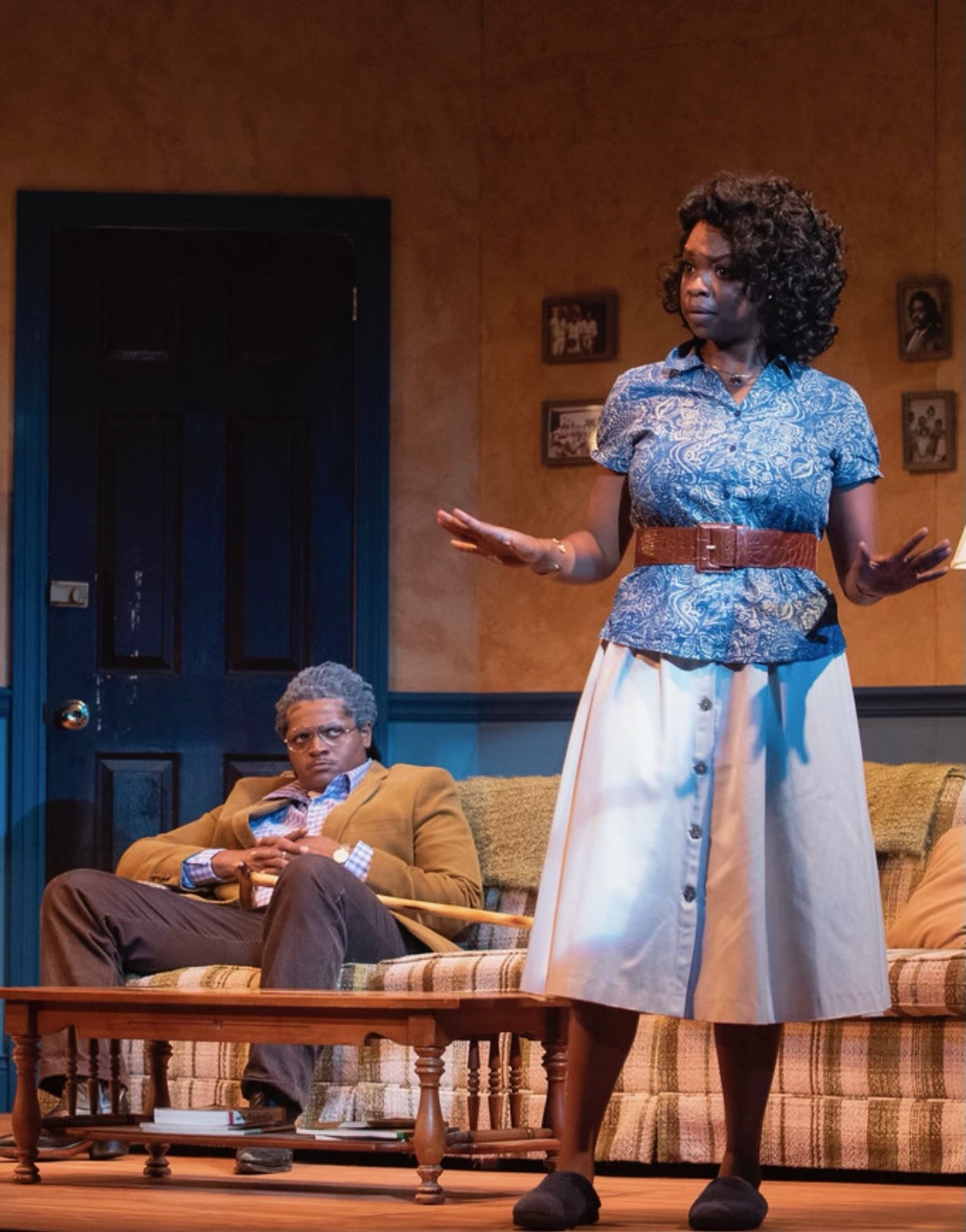 |
Brandi Threatt, MFA 2022Thesis Role: Alea in Dennis McIntrye’s Split Second Thesis Title: “Black Woman Burdening: The Process of ‘Unburdening’ Realism in Dennis McIntrye’s Spilt Second” "My thesis uses the character Alea in Dennis McIntyre’s Split Second as a case study to examine the burdensome process of performing realism for Black women. To deal with the disparities associated with being a Black woman in America and in theatre, I developed a process of “unburdening.” Unburdening is the intentional use of a range of performance methods to safely disassociate the Black woman actor from realistic traumas associated with that genre of performance." |
Tyler Tate, MFA 2021Thesis role:Several characters in Dael Orlandersmith’s Black ’N Blue Boys/Broken Men “Titled GIT (Gender-Informed Trauma) in Black ’N Blue Boys/Broken Men: How Concepts of Gender Restrict the Black Male Actor’s Creative Process and the Methods He Can Use for Creative Freedom, my thesis examines the ways cultural and historical constructions of masculinity affect the black male actor’s creative process. It outlines the impact that conceptions of race and sexuality can have on one’s acting process and how that can change a performer’s physical habits. My thesis looks at how those habits stifled my physical freedom and explains the methods I used to attain a wider range of physical choices.” |
|
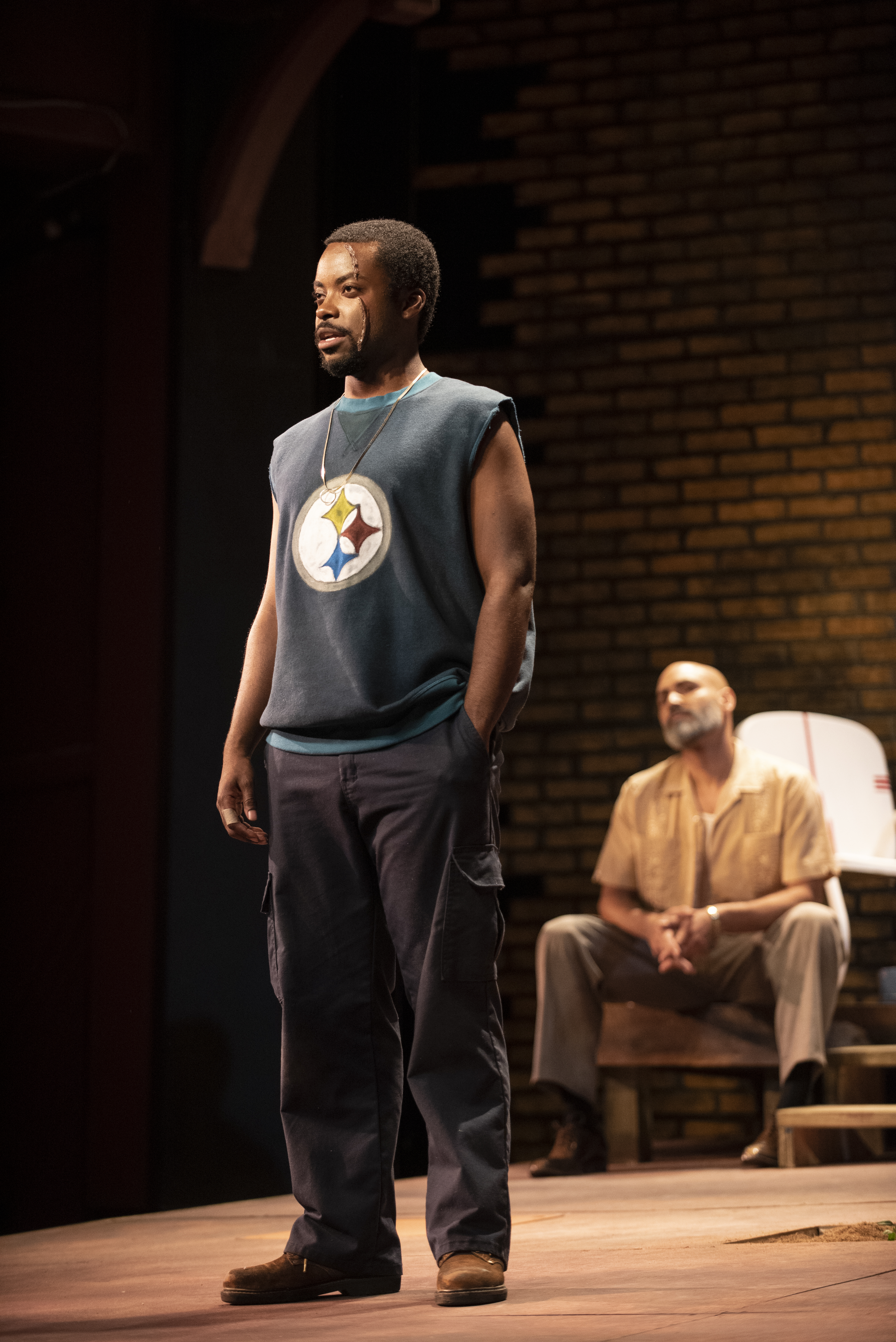 |
Xavier Harris, MFA 2020Thesis role: King Hedley II in August Wilson’s King Hedley II “My thesis, A King’s Royal Scars, is divided into five chapters that cover my exploration of black male identity in America and the scars that come with it. Through a character study of King Hedley II, the black male protagonist I portrayed in the Department’s production of August Wilson's King Hedley II, I discuss the racial stigmas and circumstances that are tied to black male identity. My thesis analyzes the American prison system, the plight of black poverty, and the scars left by absentee fathers.” |
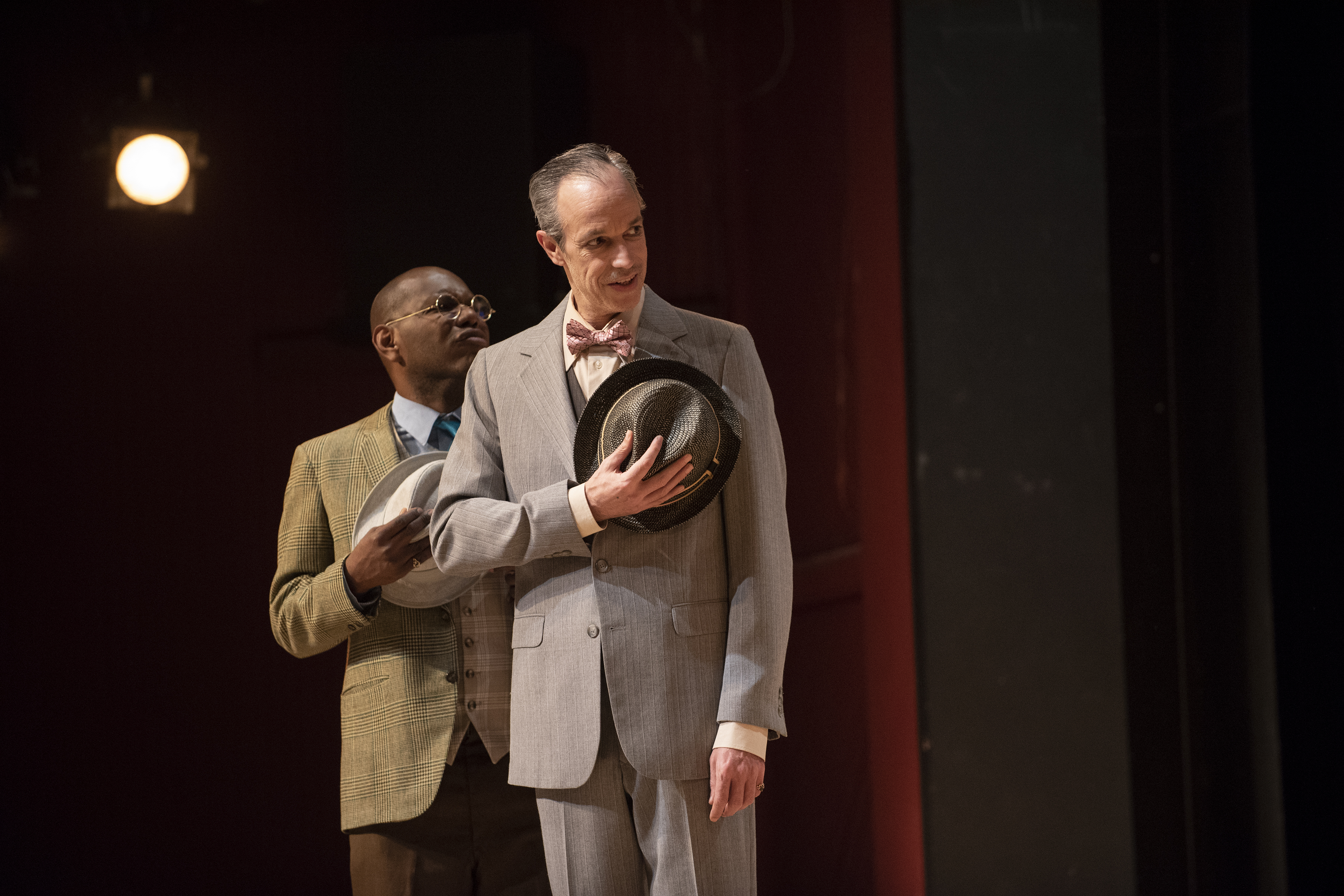 |
Terry Tocantins, MFA 2019Thesis role: Hortensio in Drs. Calvano and Segal’s adaptation of Shakespeare’s The Taming of the Shrew “In 2018, I played Hortensio in an adaptation of The Taming of the Shrew that took place among the businessmen in 1963 America. My thesis, ‘Gentlemen with Brains’: The Use of Historical Figures in the Development of the Character of Hortensio in an Adaptation of William Shakespeare’s The Taming of the Shrew, centers on the strategies and tactics I employed in the portrayal of Hortensio, a moneyed, middle-aged, single man who impersonates a music tutor to seduce the much younger Bianca. For my portrayal, I investigated the archetype of the advertising executive of the era. The worldviews of these men upheld the post-war conception of American exceptionalism, and in their occupations they were adept at manipulation free of the fear of consequences. Hortensio was specifically based on advertising pioneer (and nephew of Sigmund Freud) Edward Bernays, whose often morally dubious publicity stunts led to the popularization of smoking among women.” |
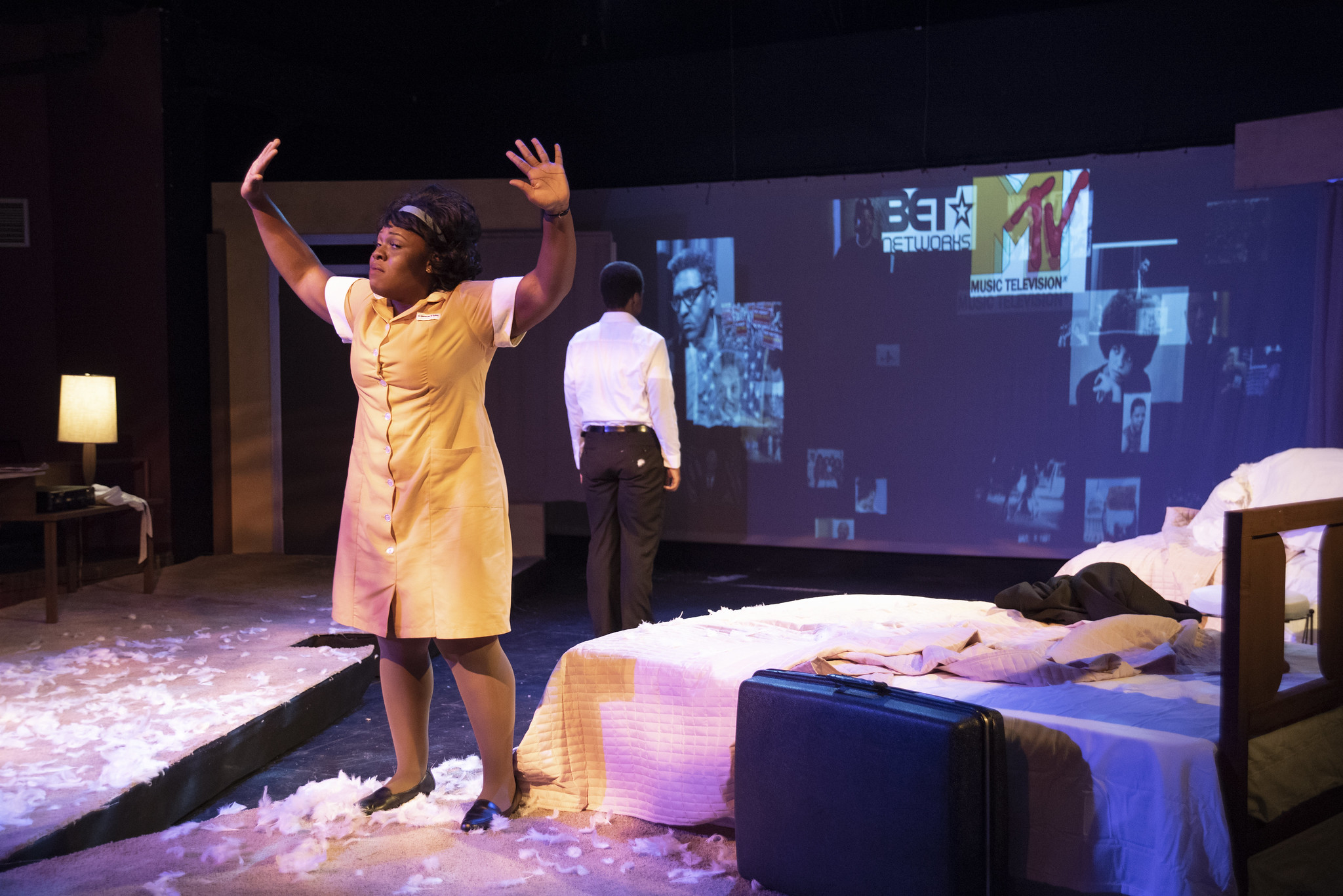 |
LaShondra Hood, MFA 2019Thesis role: Camae in Katori Hall’s The Mountaintop “The Actor’s Rhythm, Internal Beat examines the manifestation of the cerebrum's auditory (hearing) and motor (physical motion) cortex and explores how this connection influences character physicality in theatre. Katori Hall’s The Mountaintop is used as a gateway to conduct research on music and rhythm as it affects the body and to create physical character choices. By reflecting on personal musical exploration, that of my peers, and that of my students, I conclude that this method can be used for all stages of character-building and performance experiences.” |
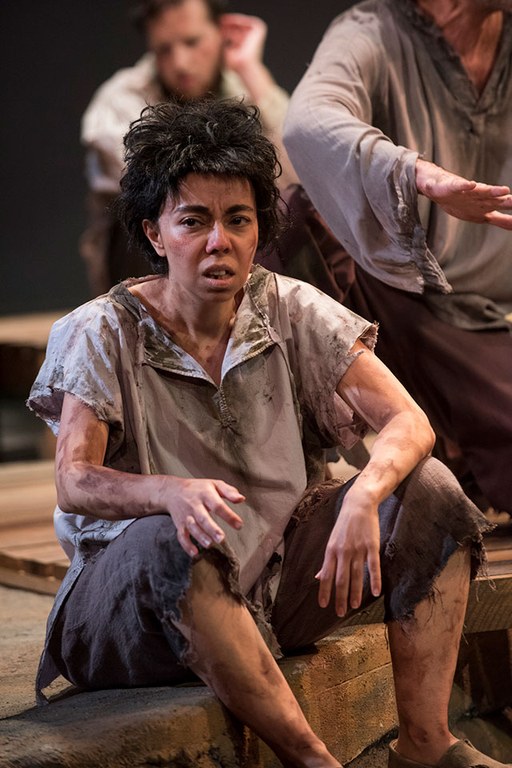 |
Lois Abdelmalek, MFA 2018Thesis role: Liz Morden/Lt. William Faddy in Timberlake Wertenbaker’s Our Country’s Good “My thesis, Igniting the Imagination: Tenaciously Building a Character, examines my process of employing imagination through historical research, text, voice, and movement in order to fully and truthfully transform from one character to another. I explore how vulnerability and staying perpetually curious are explicably tied to my use of imagination, which allows me to fully embody a character.My thesis details the acting technique I developed to play the diametrically opposed characters of Liz Morden and Lt. William Faddy in Our Country’s Good. This unique approach involves a no-holds-barred mixture of curiosity, vulnerability, and imagination.” |
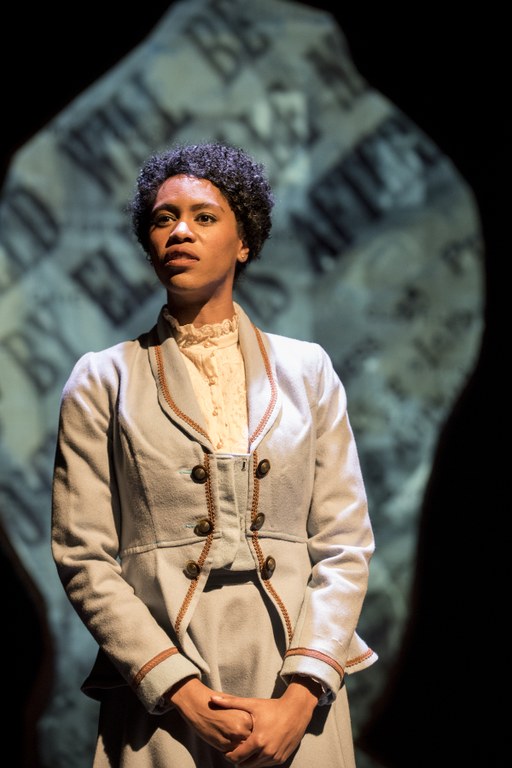 |
Sidney Edwards, MFA 2018Thesis role: Wells 2 in Miss Ida B. Wells “My thesis show was Miss Ida B. Wells by Endesha Ida Mae Holland. In this production, I played Wells 2, the younger version of Ida B. Wells, as well as several other characters. The role required extensive historical research and research geared towards character development. In my written thesis, I focus on how self-executed dramaturgy enriches the actor’s experience through an in-depth look at my own process.” |
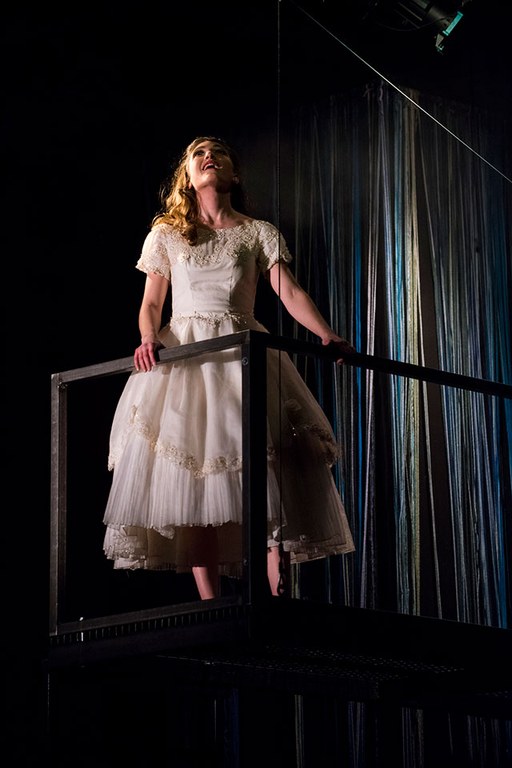 |
Mia Rocchio, MFA 2018Thesis role: Eurydice in Sarah Ruhl’s Eurydice “My thesis, Willpower Through Physical Connectivity, claims that truthful action and reaction on stage is best achieved when the mind is working because of the body, and the body is working because of the mind. I argue that in order to embrace the emotional, primal and sensational effects of stimuli received within the experience of living a character’s story, it is necessary to breathe, especially exhale, completely. My thesis details how, in the process of playing Eurydice, I discovered how fully exhaling releases red-fiber muscle tissue and forces the actor to, physically and literally, feel deeply and deal with the events taking place. I conclude that through mind and body connection, the actor is able to feel all of the character’s emotions and make the determined decision to keep going in order to achieve the character’s goals, thus producing fierce power of will from both the actor and the character.” |
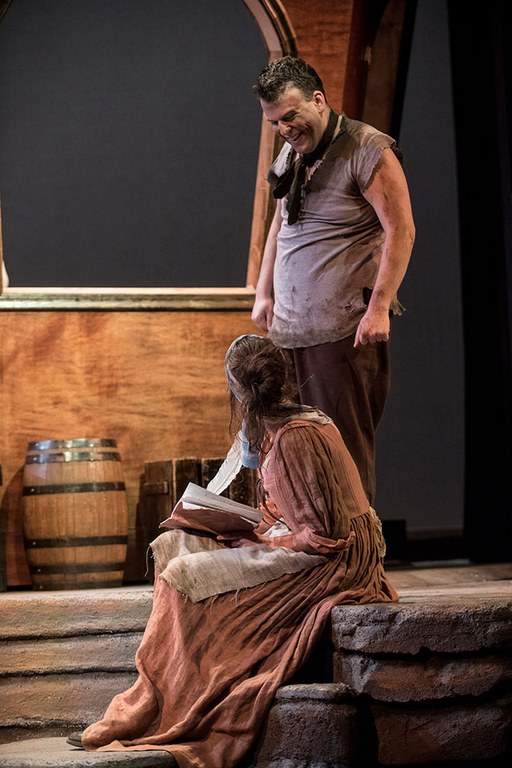 |
Ross Joel Shenker, MFA 2018Thesis role: John Wisenhammer/Reverend Johnson in Timberlake Wertenbaker’s Our Country’s Good “In an attempt to be open and receptive to my primary scene partners in Our Country’s Good, I tried a variety of techniques including: Konstantin Stanislavski’s ‘Bits and Tasks’; Michael Chekhov’s ‘Psychological Gesture’; Carl Jung’s theories on Archetype; F.M. Alexander’s notions of ‘Inhibition’ and ’Nondoing’ as discussed by Betsy Polatin; and Julia Cameron’s ‘Morning Pages.’ My goal of achieving vulnerability on stage was inhibited by the very methodologies I had hoped to employ in service to this ambition. By planning the results rather than the actions, I assumed a judgmental, directorial role and tried to control my performance. Dissatisfied with my own work and with some of the faculty’s feedback, I set out on what I call a journey of creative recovery. In my thesis, Gestures of Creative Recovery for the Egocentric Actor, I compare my process to such works as Julia Cameron’s Artist’s Way, Eckhart Tolle’s Power of Now, and the Twelve Steps laid out in the ‘Big Book’ of Alcoholics Anonymous in order to relate my desired approach as a creative theatre artist to the journey of recovery from addiction.” |
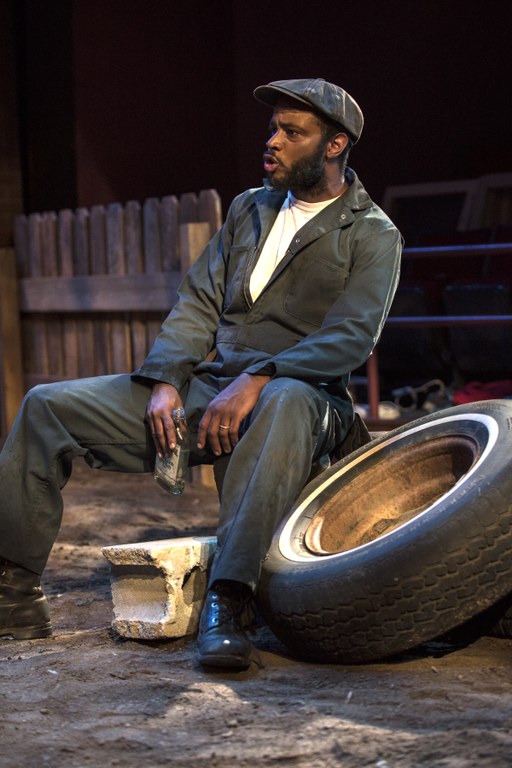 |
Tyler Madden, MFA 2017Thesis role: Troy in August Wilson’s Fences “My thesis, title ‘Labor and Happiness,’ is about sustaining happiness within the laboring process of creating a character in a play. I used the process of crafting my performance as Troy Maxson Fences as the subject of my thesis. No matter what we choose for a career/job, we all deal with the hardships of the labor. My thesis addresses how in order to get fulfillment from our labor, we have to appreciate the process of getting to our goal.” |
